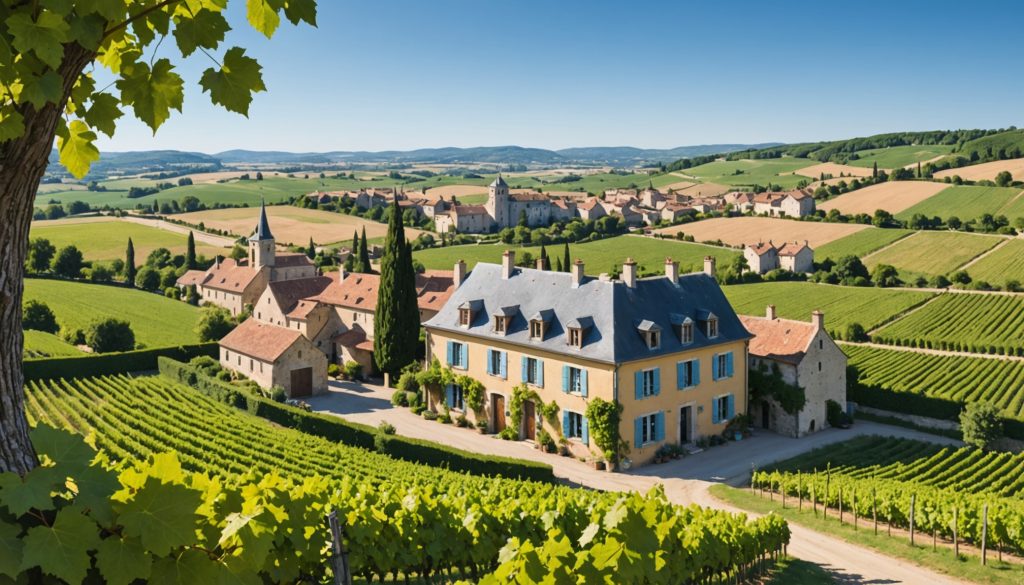Real Estate Investment Opportunities in France: A Comprehensive Guide for Investors
Estimated Reading Time: 7 minutes
Key Takeaways
- Market Stability: Prices in the French real estate market are stabilizing after previous declines, with promising signs of recovery as interest rates begin to ease.
- Investment Yield Variations: Rental yields vary significantly across regions, with urban areas typically yielding 2-4% while certain regions may offer yields up to 6%.
- Ownership Accessibility: Foreigners enjoy almost unrestricted rights to purchase and sell property, although there are notable transaction costs and tax implications.
- Regulatory Awareness: Investors should stay informed about evolving regulations, especially concerning short-term rentals.
- No Direct Residency Pathway: Property ownership does not guarantee residency but can support long-stay visas.
Table of Contents
- Key Takeaways
- Market Overview
- Investment Trends & ROI Projections
- Legal & Tax Considerations
- Property Types & Prices
- Risks & Challenges
- Financing & Mortgage Options
- Citizenship/Residency Benefits
- FAQ
Market Overview
The French real estate market is navigating a transition period characterized by fluctuating economic conditions. Here are the key aspects:
- Economic Conditions: The market faced challenges due to high interest rates and inflation, leading to decreased transaction volumes. However, an easing of interest rates is expected in 2025, improving buyer sentiment.
- Price Trajectory: Residential property prices have seen a slowdown in decline, with a projected moderation to around -0.7% by early 2025, suggesting emerging stability.
Investment Trends & ROI Projections
Investing in French real estate requires an understanding of current trends and potential returns:
- Rental Yields:
- Paris: 2%–4%
- Major Cities (Lyon, Bordeaux, Nice): 3%–6%
- Emerging Regional Markets (Toulouse, Montpellier): Approximately 4%–6%
- Market Outlook: Though capital gains are limited in the short term due to price corrections, the medium-term outlook appears more favorable as the market stabilizes.
Legal & Tax Considerations
Understanding the legal and tax landscape is critical for foreign investors:
- Ownership Rights: Foreigners can freely purchase, hold, and sell real estate in France.
- Transaction Costs: About 7-8% for older properties and 2-3% for new builds consists of notary fees, registration taxes, and agency fees.
- Taxation:
- Rental Income: Progressive rates for residents; non-residents typically pay a flat rate (20-30%).
- Capital Gains Tax: 19% plus additional charges for non-residents, with exemptions applicable after certain ownership durations.
- Wealth Tax: Applicable on real estate assets valued above €1.3 million.
Property Types & Prices
Property types and their prices vary significantly across France:
- Average Prices per m²:
- Paris: €10,000–12,000
- Major Cities: €4,000–8,000
- Regional/Rural Areas: €1,500–3,500
- Demand: There is a strong rental demand in urban centers and tourist regions, driven by a contracting construction pipeline and ongoing domestic and expatriate interest.
Risks & Challenges
Investors should be aware of potential risks in the French real estate market:
- Market Volatility: While the market is stabilizing, potential volatility exists as economic conditions evolve.
- Liquidity Issues: Rural properties may face liquidity challenges, especially during downturns.
- Regulatory Risks: Changing regulations, particularly around short-term rentals, pose challenges that investors must navigate.
Financing & Mortgage Options
Financing can be a significant aspect of investment strategy:
- Borrowing Requirements: French banks are cautious with lending to non-residents, often requiring hefty documentation and substantial equity (20%-30% down payment).
- Mortgage Rate Trends: An anticipated easing of mortgage rates in 2025 may provide more favorable conditions for investors.
Citizenship/Residency Benefits
France does not offer direct routes to citizenship through property investment. However:
- Long-Term Residency Options: Ownership may support long-stay visa applications, but investors must still meet other requirements, including proof of income and time spent in France.
FAQ
- Q: What is the average rental yield in Paris?
A: Rental yields in Paris range from 2% to 4%. - Q: Are foreign investors restricted from purchasing property in France?
A: No, there are no major restrictions on property ownership for foreigners in France. - Q: What are the transaction costs for buying property?
A: Transaction costs typically amount to 7-8% for older properties and around 2-3% for new constructions. - Q: Is there a pathway to citizenship through property investment?
A: No, France does not provide a direct citizenship route through property purchase.
Call to Action:
For more insights and guidance on investing in real estate, visit Realty Invest Navigator.
This comprehensive overview aims to provide you with the necessary insights for investing in France’s real estate market. The landscape is changing, and with careful strategy and awareness, opportunities abound.

